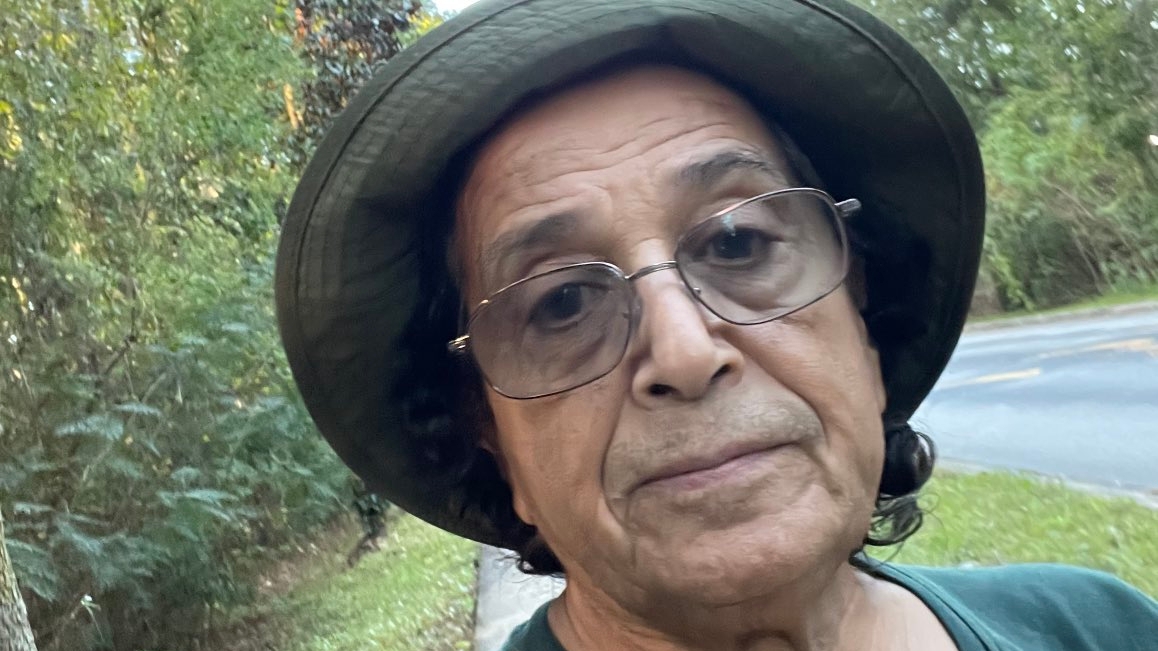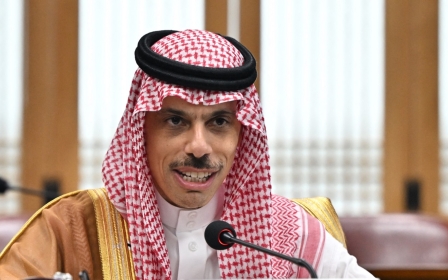Saudi Arabia: US citizen jailed for 16 years over tweets was tortured, says son

The son of an elderly US citizen who was sentenced in Saudi Arabia earlier this month to 16 years in prison over tweets he posted criticising the kingdom has said his father has been tortured in jail.
Ibrahim Almadi, the father of Saudi-American Saad Ibrahim Almadi, 72, told the Washington Post that the US State Department had been both neglectful and negligent over the case.
Ibrahim said no one from the US embassy in Saudi Arabia had visited his father until six months after his arrest in November last year and that no US officials had attended his sentencing despite having notified them of the hearing.
"I told the State Department [my father's] hearing was set for 3 October and they should attend. Afterward, over the phone, they said, ‘Oh, I’m sorry we forgot to tell the embassy.’"
- Ibrahim Almadi, son of Saad Almadi
Saad, a project manager from Florida, was detained last year at Riyadh airport when he travelled to Saudi Arabia to visit family.
He was charged with harbouring a terrorist ideology, trying to destabilise the kingdom, as well as supporting and funding terrorism over 14 tweets he had posted on his account while in the US over the previous seven years.
New MEE newsletter: Jerusalem Dispatch
Sign up to get the latest insights and analysis on Israel-Palestine, alongside Turkey Unpacked and other MEE newsletters
One of the tweets made reference to Jamal Khashoggi, a Middle East Eye and Washington Post columnist who was murdered by Saudi agents in the Saudi consulate in Istanbul in 2018.
Other tweets included criticism of corruption inside the kingdom.
Ibrahim told the US newspaper that the State Department had told him not to speak publicly about his father's case, but that he no longer believed that staying quiet would secure his father’s freedom.
During the meeting between embassy officials and his father in May, Saad declined to ask Washington to intervene as Saudi jailers threaten to torture prisoners who involve foreign governments in their cases, Ibrahim added.
In a second meeting in August, Ibrahim said his father did ask for the State Department’s assistance and was consequently tortured.
The Washington Post said a senior State Department official had confirmed that the consular affairs office in Washington had failed to tell the embassy in Riyadh about the date of Saad's hearing, despite being notified by Ibrahim.
“I told the State Department his hearing was set for 3 October and they should attend,” Ibrahim told the newspaper.
“Afterward, over the phone, they said, ‘Oh, I’m sorry we forgot to tell the embassy.’ I feel like they are just careless.”
Saad was sentenced to 16 years in prison followed by a 16-year travel ban, meaning he would be a 104-years old before he could return to the US.
'Wrongfully detained'
Saudi Arabia is regularly accused by rights groups over the torture and ill-treatment of prisoners in its jails, something they say has become worse since Crown Prince Mohammed bin Salman became de facto ruler of the kingdom in 2015.
Last week, Middle East Eye reported that one of several Saudi Arabian men sentenced to death earlier this month for resisting their tribe's displacement over the kingdom's Neom megaproject was tortured in prison.
Shadli al-Howeiti was arrested in 2020 for opposing the forcible eviction of the Howeitat tribe. This May, according to Saudi human rights group ALQST, he went on hunger strike to protest against his ill-treatment in prison, including being placed in solitary confinement.
After two weeks, authorities at the Dhahban Prison in Jeddah - the same facility where women's rights activists say they were sexually harassed and tortured in 2018 - inserted a tube into his stomach to force-feed him, which is a form of torture, ALQST said.
Ibrahim is now calling for his father to be designated as a “wrongfully detained” US citizen, which would see his case moved from the State Department’s Bureau of Consular Affairs to the Office of the Special Presidential Envoy for Hostage Affairs (SPEHA).
SPEHA has a wider variety of tools to secure the release of Americans considered unjustly detained abroad.
Tensions between longtime partners Washington and Riyadh have been on the rise over the Saudi-led OPEC+ cartel's recent vote to cut oil production by up to two million barrels per day from November.
The decision came despite heavy lobbying by the US in Gulf capitals against the move.
Ali al-Ahmed, founder and director of the Institute for Gulf Affairs, told the Washington Post that Saudi Arabia's crown prince was "acting as if he believes or knows that the Biden administration won't bring pressure on them regarding American prisoners, let alone oil and other issues".
“The Biden White House’s inaction on American hostages in Saudi prisons led to the harshest sentence against an American abroad," he said.
Middle East Eye delivers independent and unrivalled coverage and analysis of the Middle East, North Africa and beyond. To learn more about republishing this content and the associated fees, please fill out this form. More about MEE can be found here.





